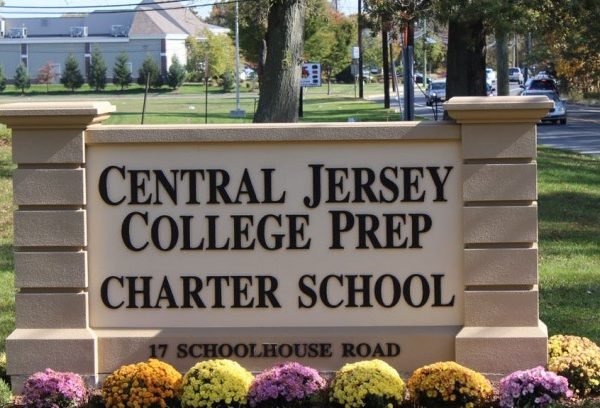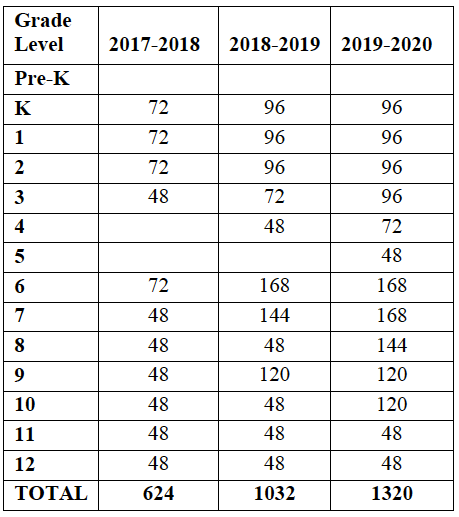Updated: State Approves CJCP’s Expansion Application
Updated with new information throughout.
An application to double the maximum number of students at Central Jersey College Prep Charter School was approved March 1 by the state Board of Education.
The school will be allowed to enroll up to 1,320 students in grades Kindergarten to 12 between now and 2020. The school currently enrolls 480 students in grades K-2 and 6-12, and was originally chartered to enroll 624 students in grades K-12.
The approval will establish CJCP as a full K-12 school in the 2019-2020 school year.
With the approval, CJCP will also be able to open a satellite campus in New Brunswick and move to a new location on Mettlers Road.
Anticipating the application would be approved, CJCP made plans to move from its current Schoolhouse Road location to a two-story building on Mettlers Road. The school received Planning Board approval in December 2016 to renovate part of the building.
The school currently draws students from Franklin, North Brunswick and New Brunswick.
Acting state DOE Commissioner Kimberly Harrington outlined the following approved enrollment increase for the school in her approval letter to Ferhan Tunagur, president of the school’s Board of Trustees:
CJCP is also required to provide all documentation of the new township location and the satellite location, once it is determined, to the Office of Charter and Renaissance Schools and the Somerset County Office of Education, according to Harrington’s letter.
CJCP was one of 15 charter schools in the state whose expansion applications were approved on March 1. An additional 21 charter school applications were renewed for another five years, and one renewal application was denied.
CJCP and the township’s other charter school, Thomas Edison EnergySmart Charter School – as well as other charter schools in the state – have come under fire recently from public school districts and public school advocates who say the schools’ expansion siphons money from the traditional school districts and threatens the programs of traditional public schools.
Charter school students do not pay tuition, their host school districts pay a set fee per pupil to the charter schools. In the 2016-17 school year, the district anticipated diverting about $4.8 million to CJCP.
CJCP receives about $13,000 per student, Sercan has said. If the newly approved full capacity is reached, the district could send more than $17 million to CJCP in five years.
The districts and charter school critics also say that charter school students are segregated and do not accurately reflect the demographics of their host towns.
Two groups have asked for federal investigations into the effects of charter schools on New Jersey school districts, and have also asked the state DOE to close CJCP and TEECS. Civil rights violation charges were also leveled at the schools for their enrollment practices.
The two charter schools have denied the allegations and charged their critics with trying to harass charter schools out of existence. The schools contend their enrollment practices are transparent, and they do not control who applies for admission.
Sercan in a press release thanked acting DOE Commissioner Kimberly Harrington for approving the expansion application.
“This enrollment expansion will allow CJCPCS to meet the continual increase in demand for enrollment from parents in the communities we serve,” Sercan wrote. “It will also allow us to open a new satellite campus in New Brunswick, where we will be able to educate an even more diverse student population.”
“CJCP is committed to continuing to work collaboratively with the local school districts to ensure that all of our public school students are given the best possible opportunities to succeed academically,” he wrote.
Board of Education president Ed Potosnak said he was disappointed in the state DOE’s decision. The board had asked the DOE to not approve the expansion.
“It’s disappointing to see the Christie administration expanding schools that don’t serve the demographics in our community,” Potosnak said. “They are simply wrong for rewarding poor performance with expansion and it will lead to further segregation based on ethnicity, ability and language proficiency. Christie’s DOE is in a rush to get as many of these schools approved before his term ends, so out came the rubber approval stamp.”
The charter school “serves different populations with 0 percent English language learners, when we have 7 percent and something like 4 percent special ed when we have 16.5 percent,” he said.

























































